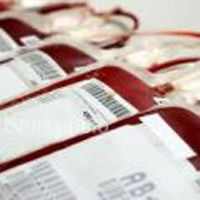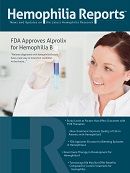Turoctocog Alfa May Not Offer Benefits Compared to Current Treatment for Hemophilia
A drug that was approved less than 1 year ago to help with the prevention and treatment of bleeding in patients with hemophilia A may not have the desired effect, according to a recent study.

A drug that was approved less than 1 year ago to help with the prevention and treatment of bleeding in patients with hemophilia A may not have the desired effect, according to a recent study.
According to work by the Institute for Quality and Efficiency in Health Care, turoctocog alfa, also known as NovoEight, underwent an early benefit assessment to determine if there was “an added benefit” over comparator therapy. “According to the findings, an added benefit of turoctocog alfa is not proven,” the authors reported. “As no relevant study is available for comparison with the appropriate comparator therapy, the benefit assessment of the drug manufacturer is based on its own deliberations and assumptions, for which, however, a valid data basis is lacking.”
Turoctocog alfa, according to the report, is meant to make up for a patient’s tendency to bleed as a result of the haemophilia by being injected intravenously every 2 to 3 days. The manufacturers of the drug opted for blood clotting factor VIII octocog alfa as a comparator but the report finds fault with the selection of a single third-generation agent known as Advate for the drug.
“This restriction does not correspond to the comparator therapy specified by the G-BA (Federal Joint Committee), as according to the G-BA’s requirements, for a complete comparison all agents containing the active ingredient octocog alfa must be considered.”
The report states the manufacturer of the company also did not cite any relevant studies for the comparison chosen. “Instead the manufacturer bases its benefit assessment on fundamental deliberations and assumptions, which are inferred from different publications and statistics."
As part of the information provided by the manufacturer, one advantage of turoctocog alfa allows the drug to be stored in environments as warm as 30 degrees Celsius rather than octocog alfa, which requires a maximum temperature of no more than 25 degrees.
This is done, according to the company, to allow a “better integration of patients with hemophilia into a normal social life.” The report said there is no documentation proving this statement or the impact the slightly warmer temperature would have on their everyday lives. “Therefore, the manufacturer’s deliberations are overall not suited to assess the patient-relevant beneficial and harmful effects of turoctocog alfa versus the appropriate comparator therapy. The added benefit of the new active ingredient is therefore not proven.”
